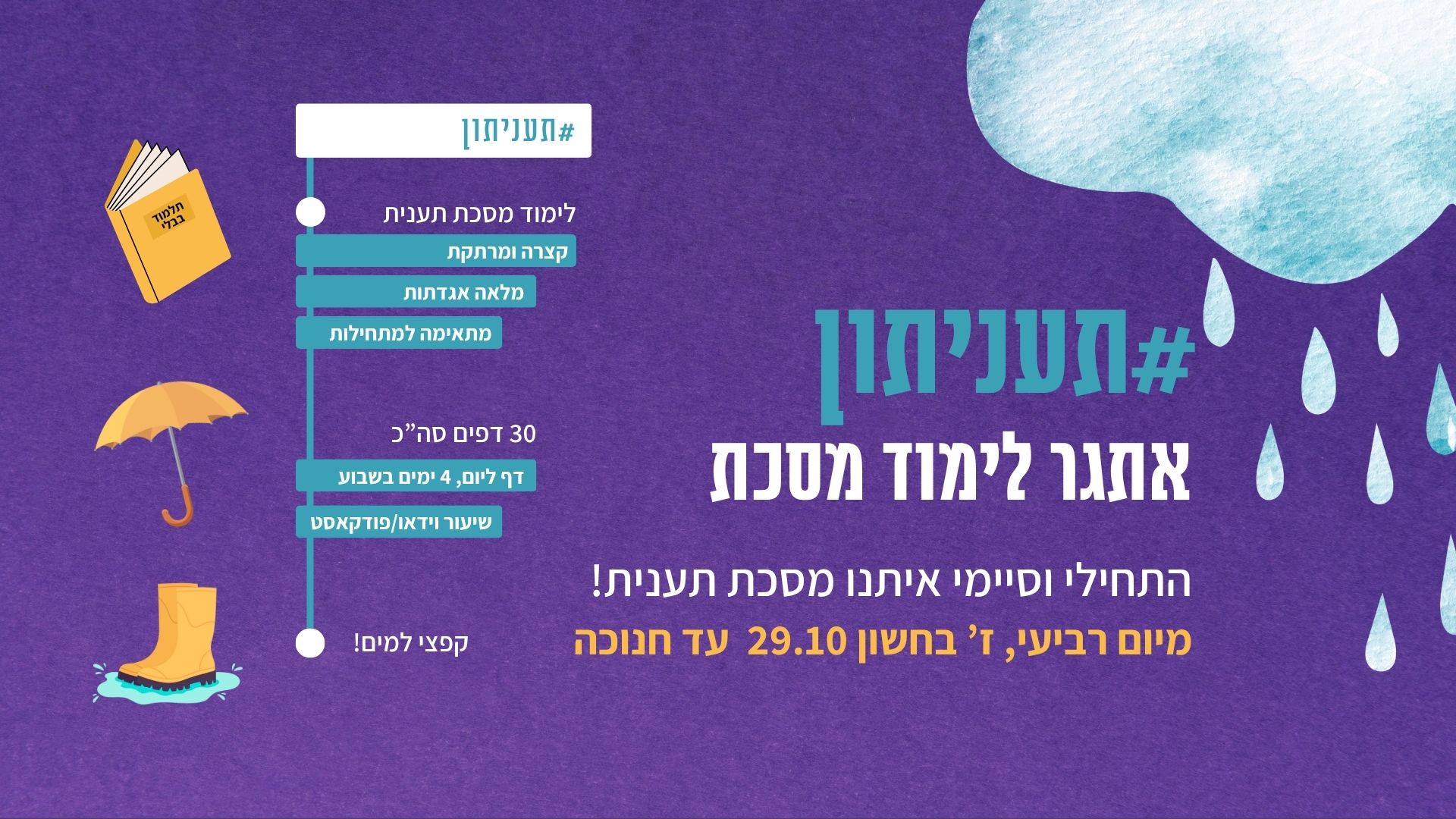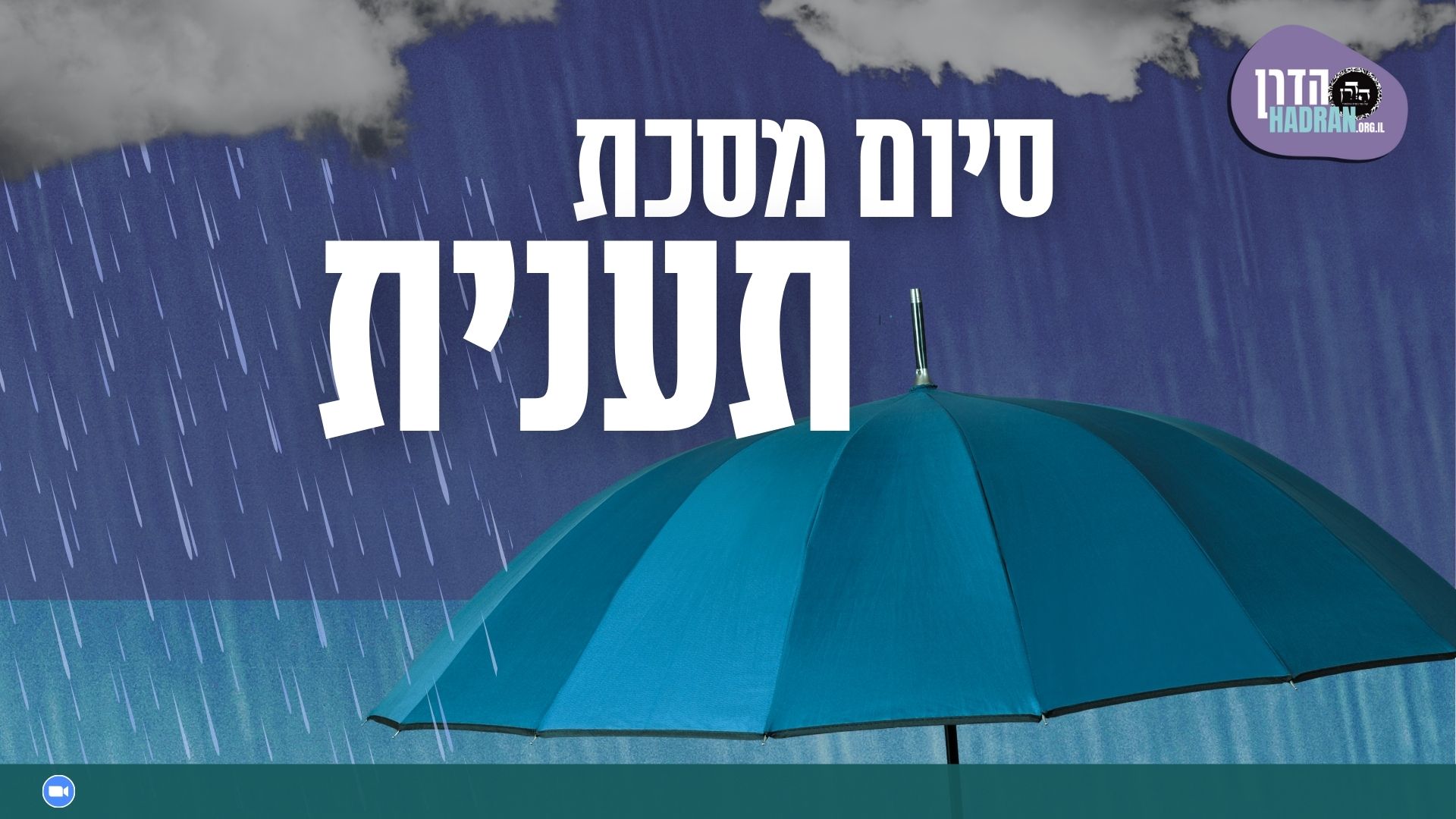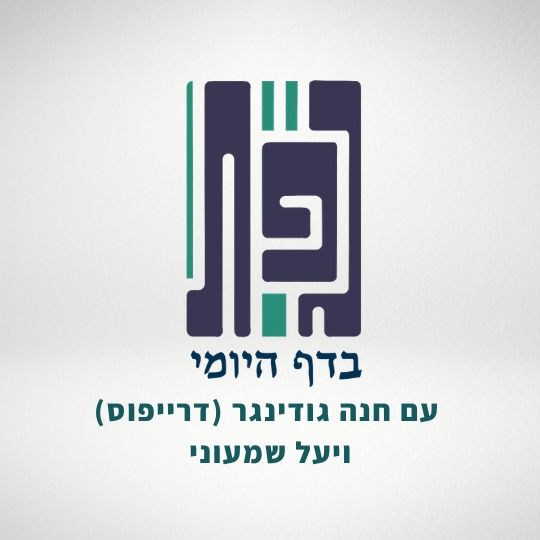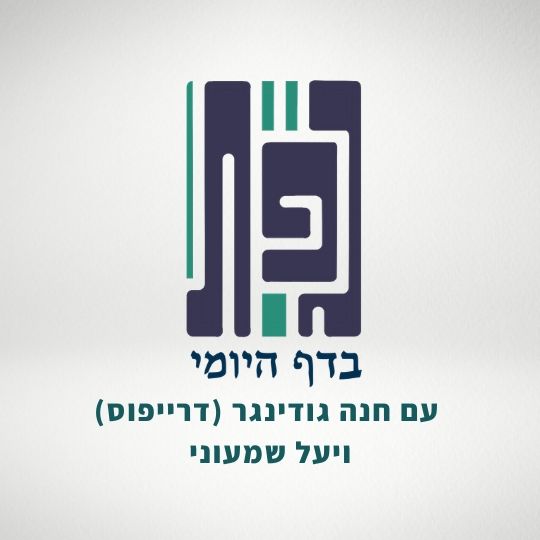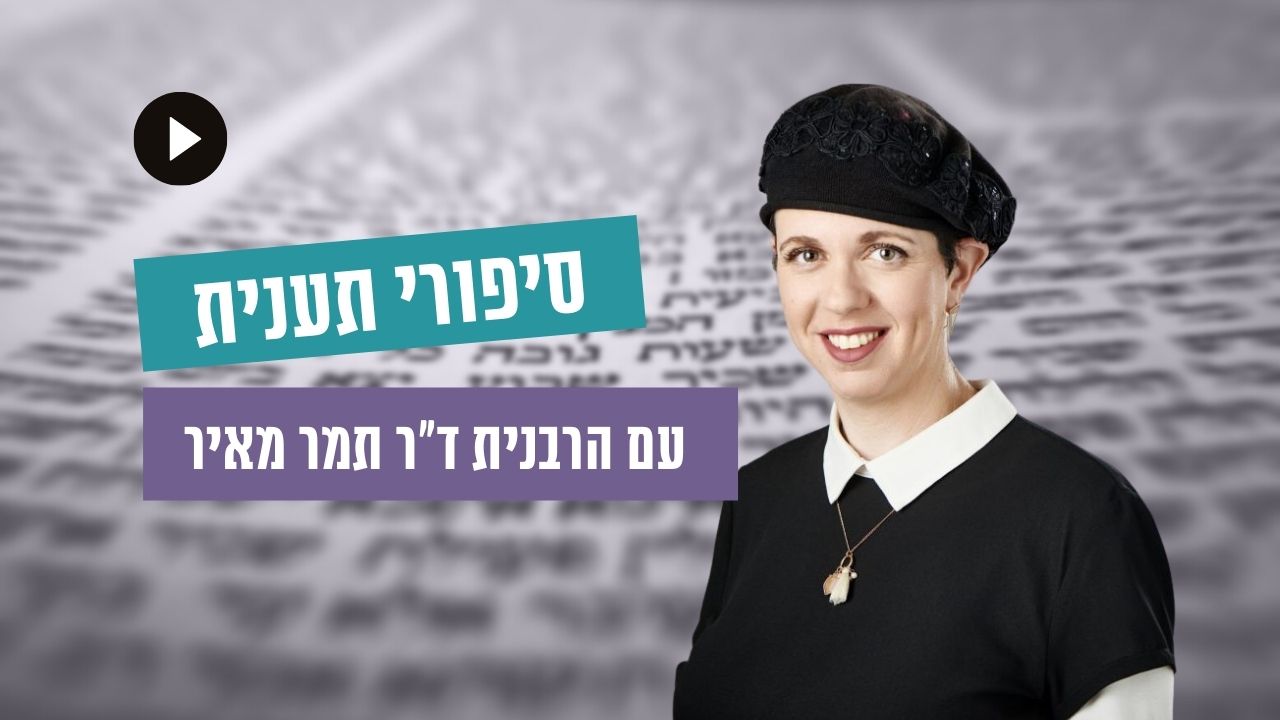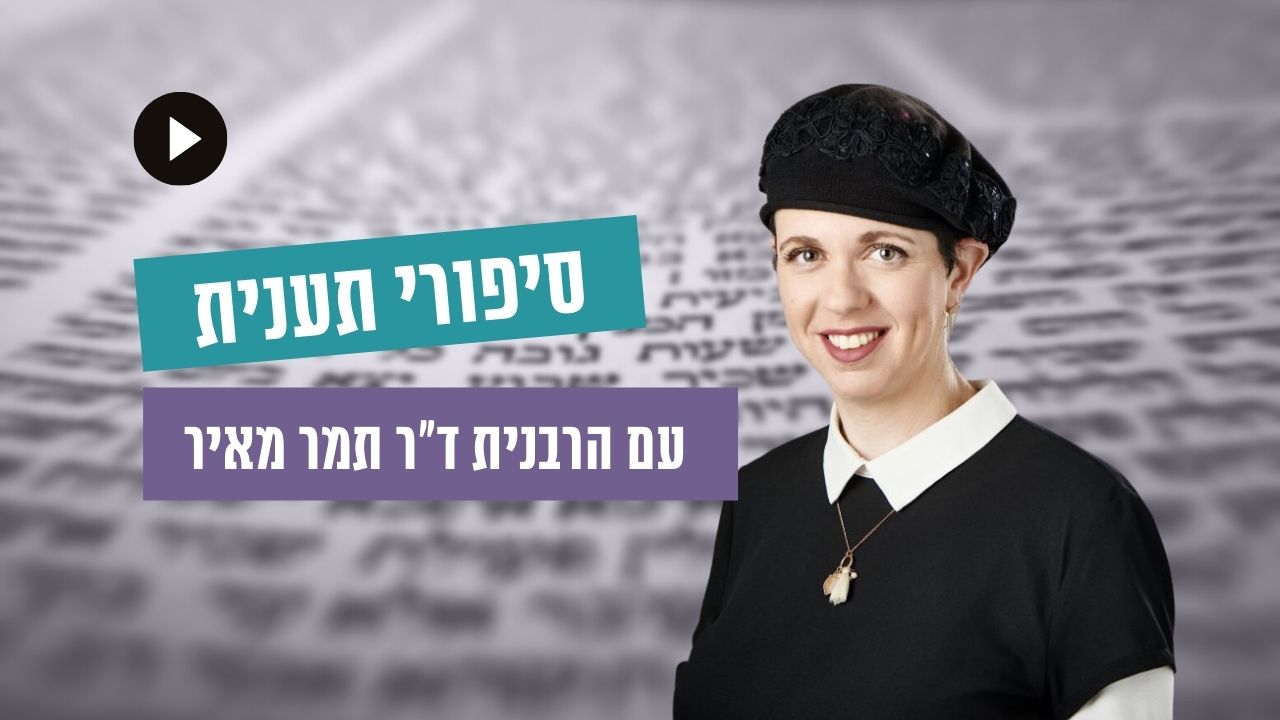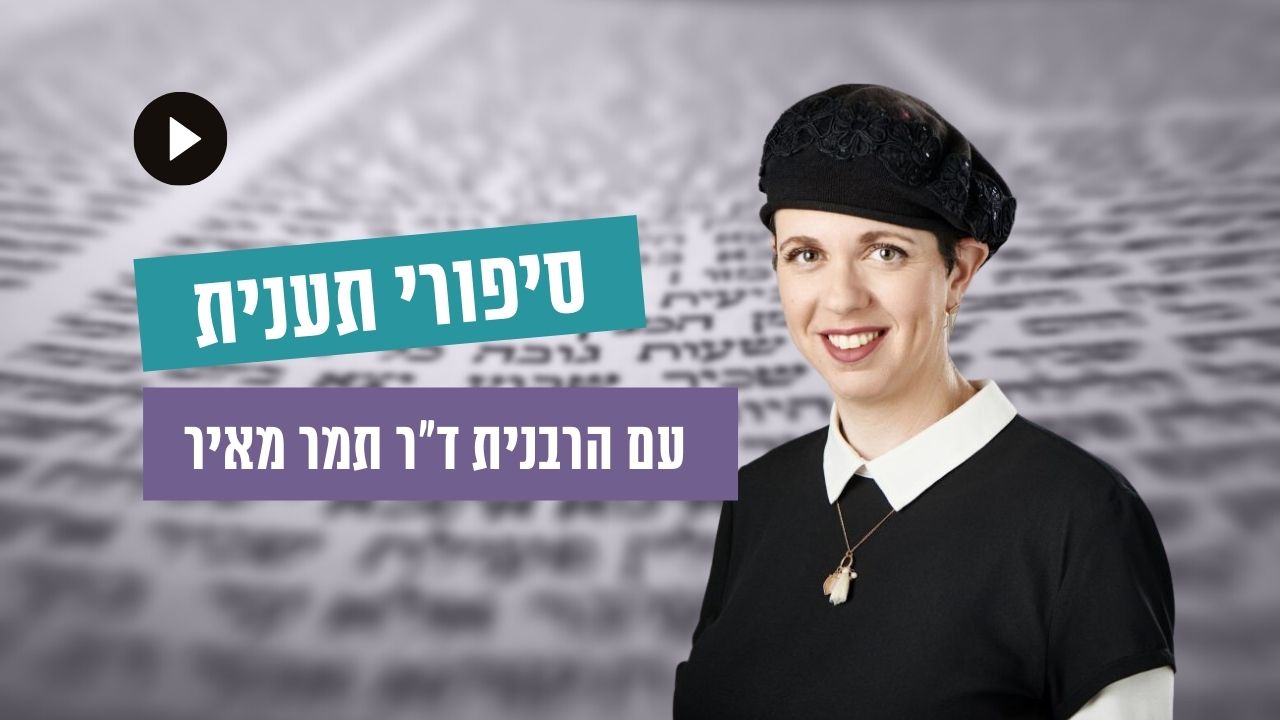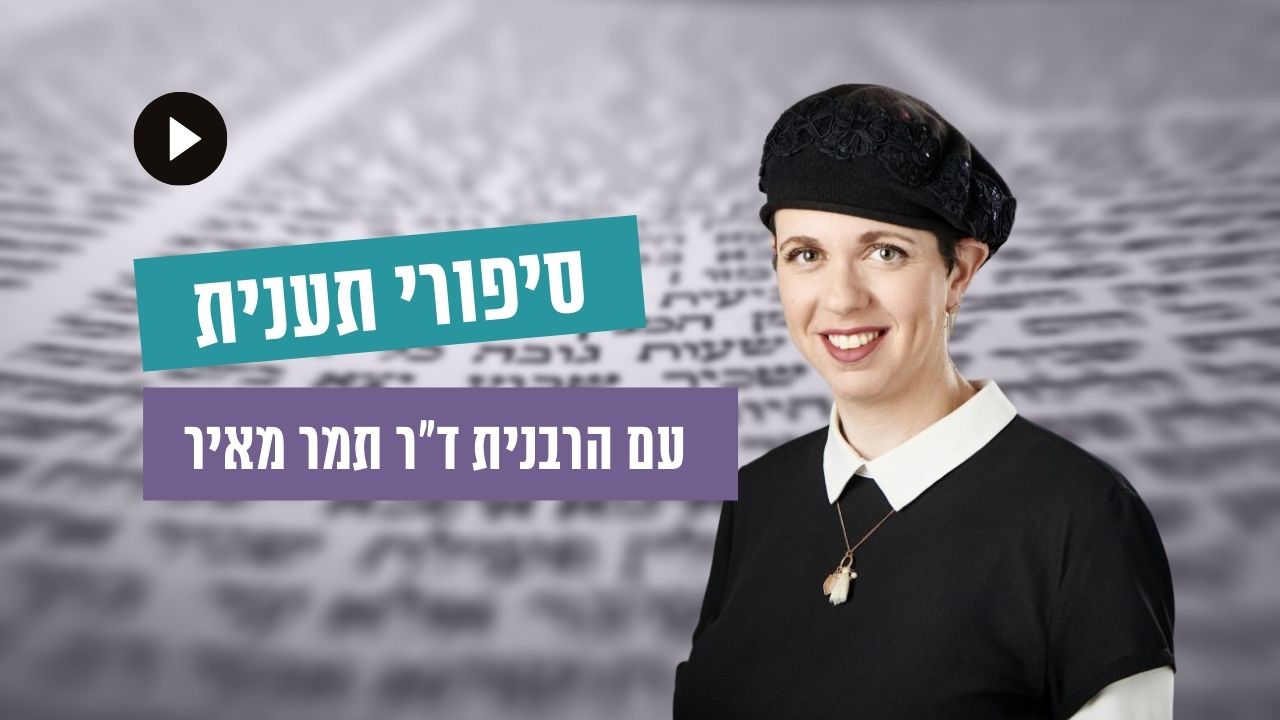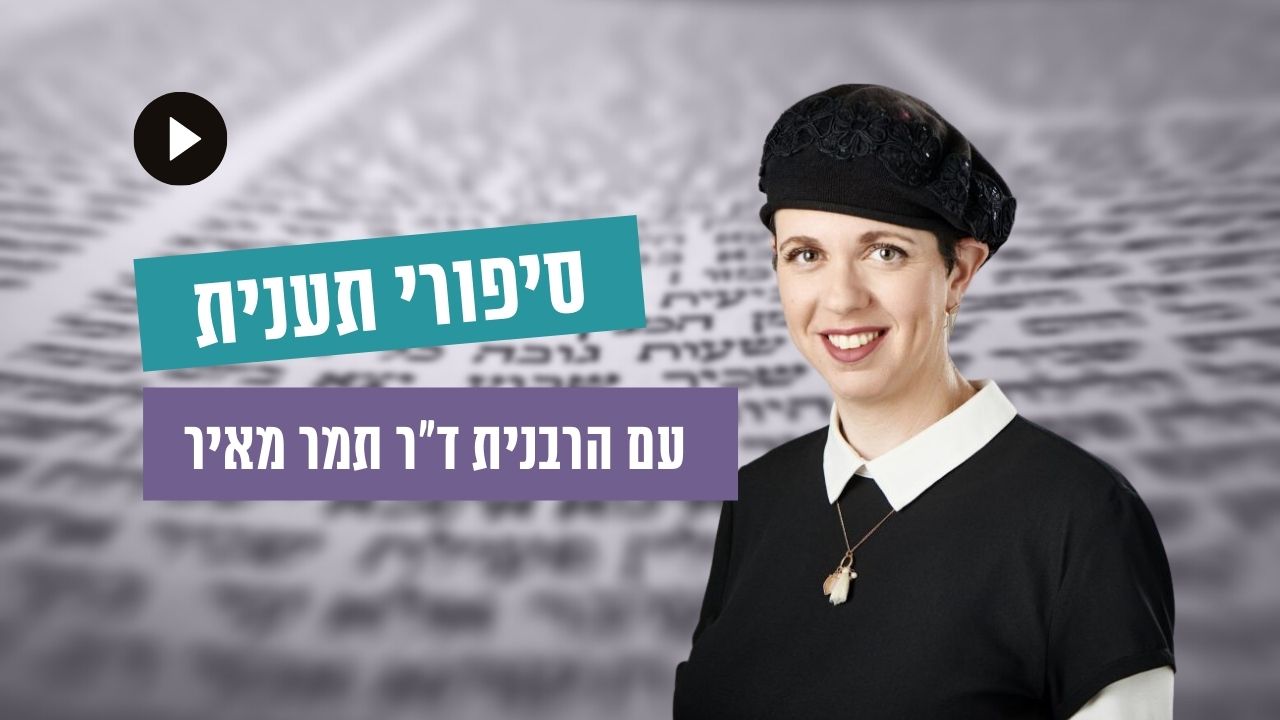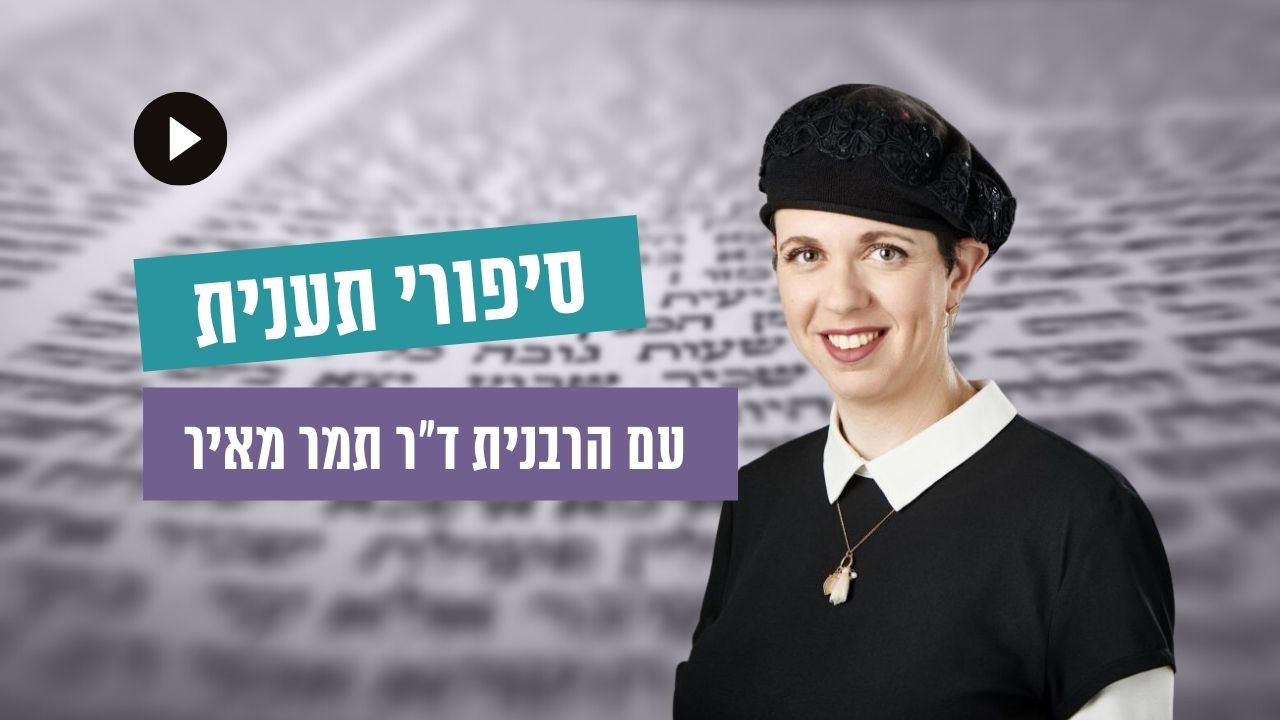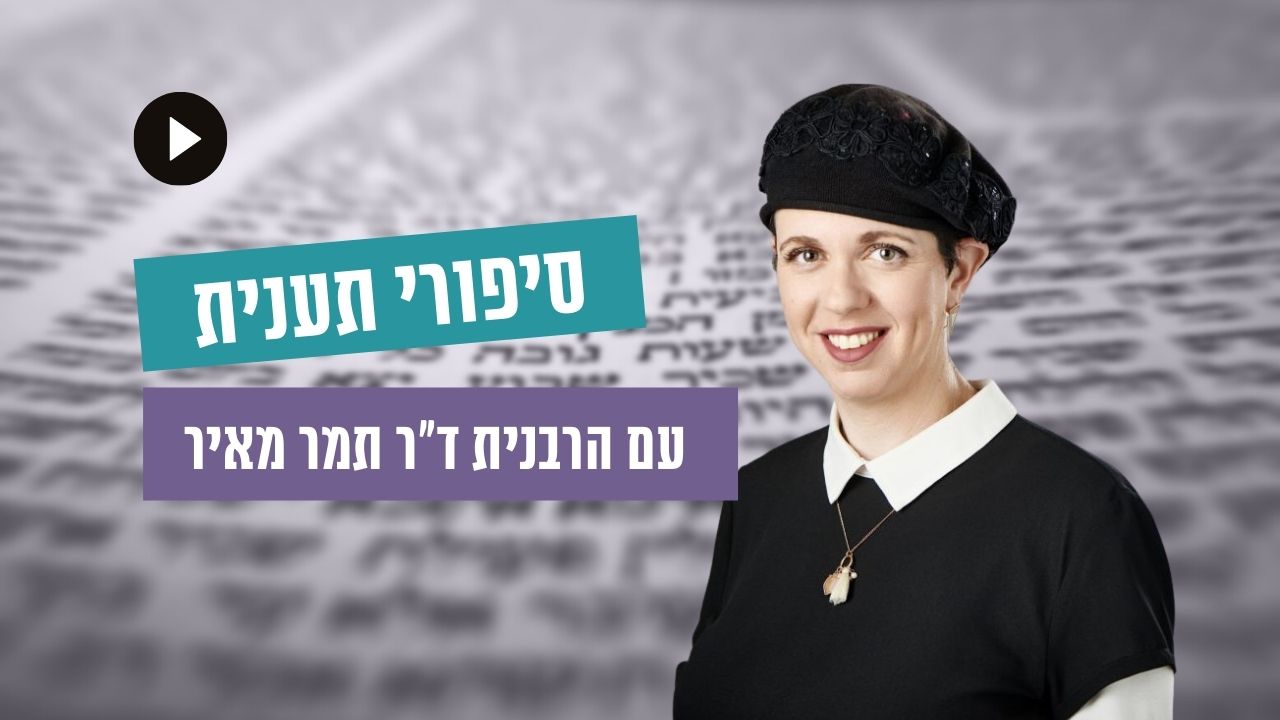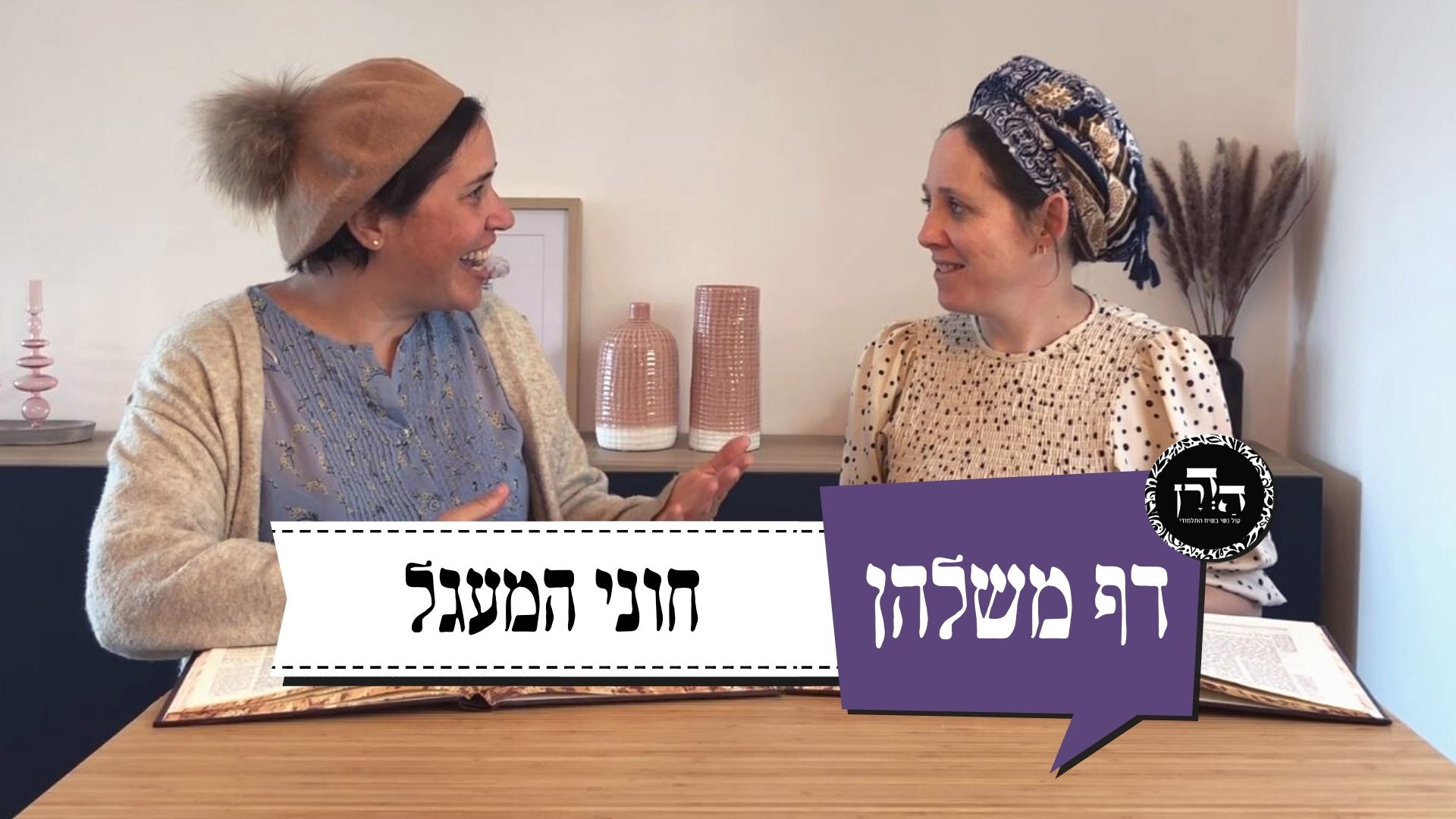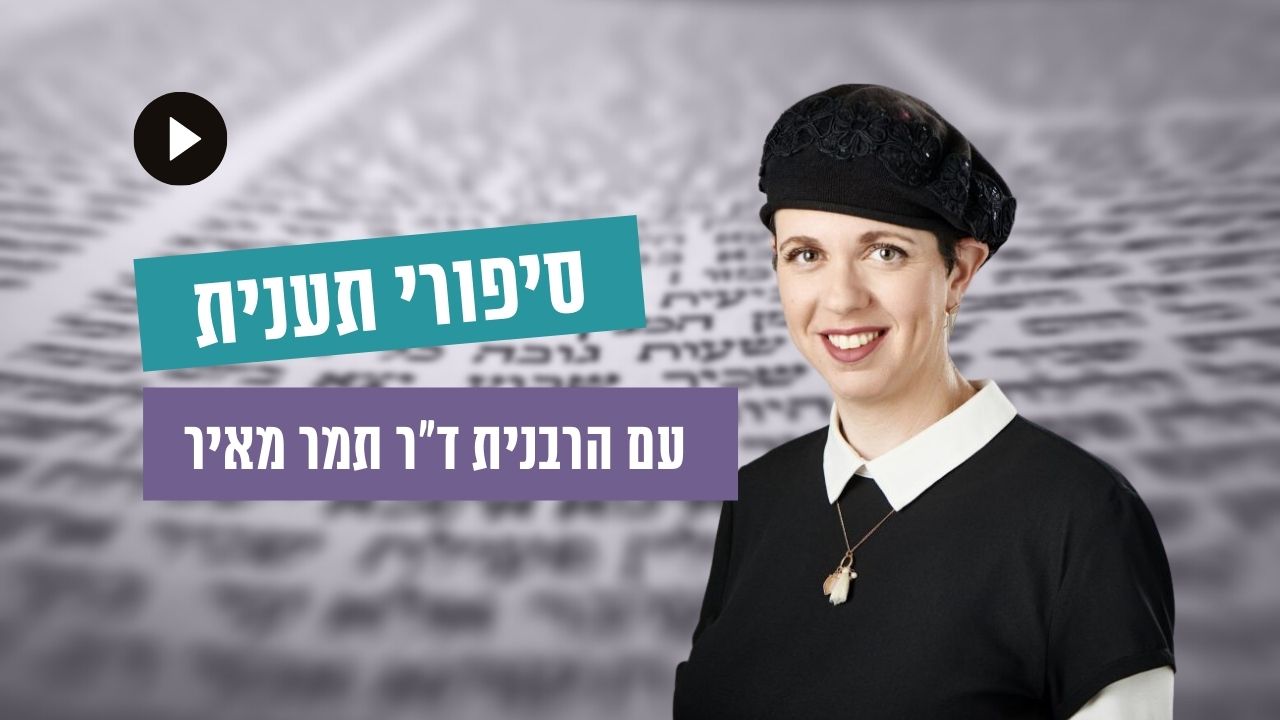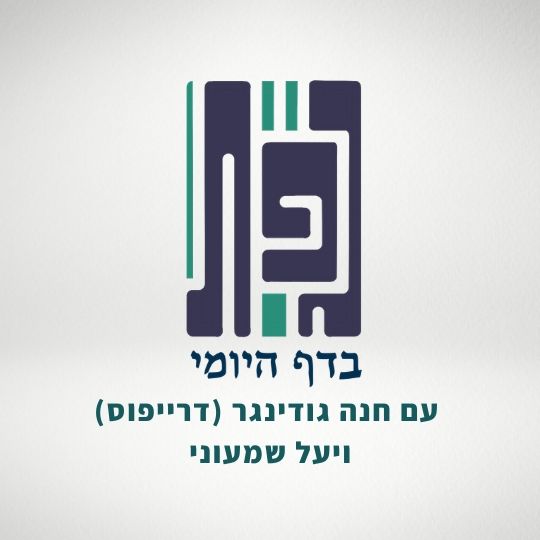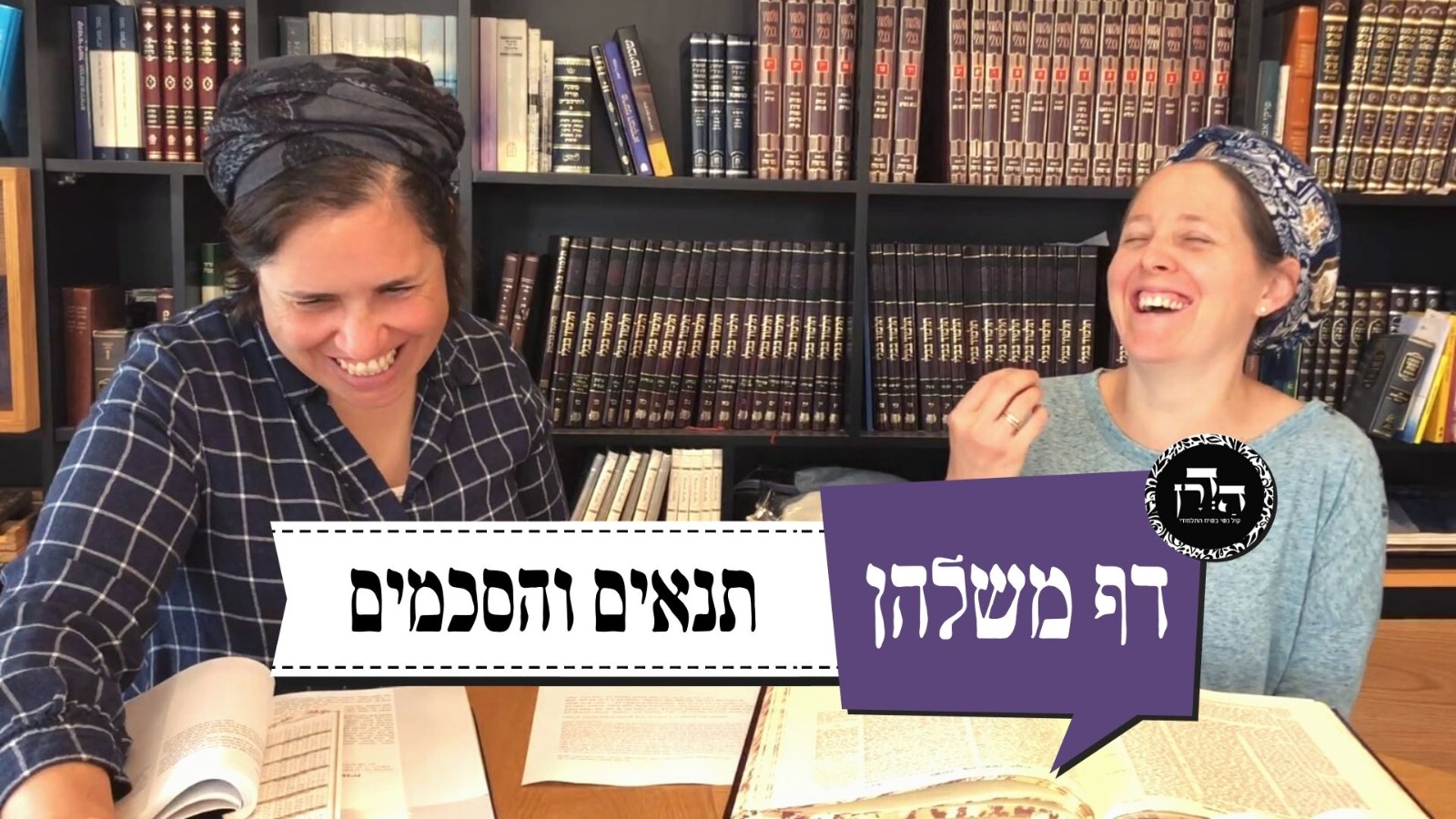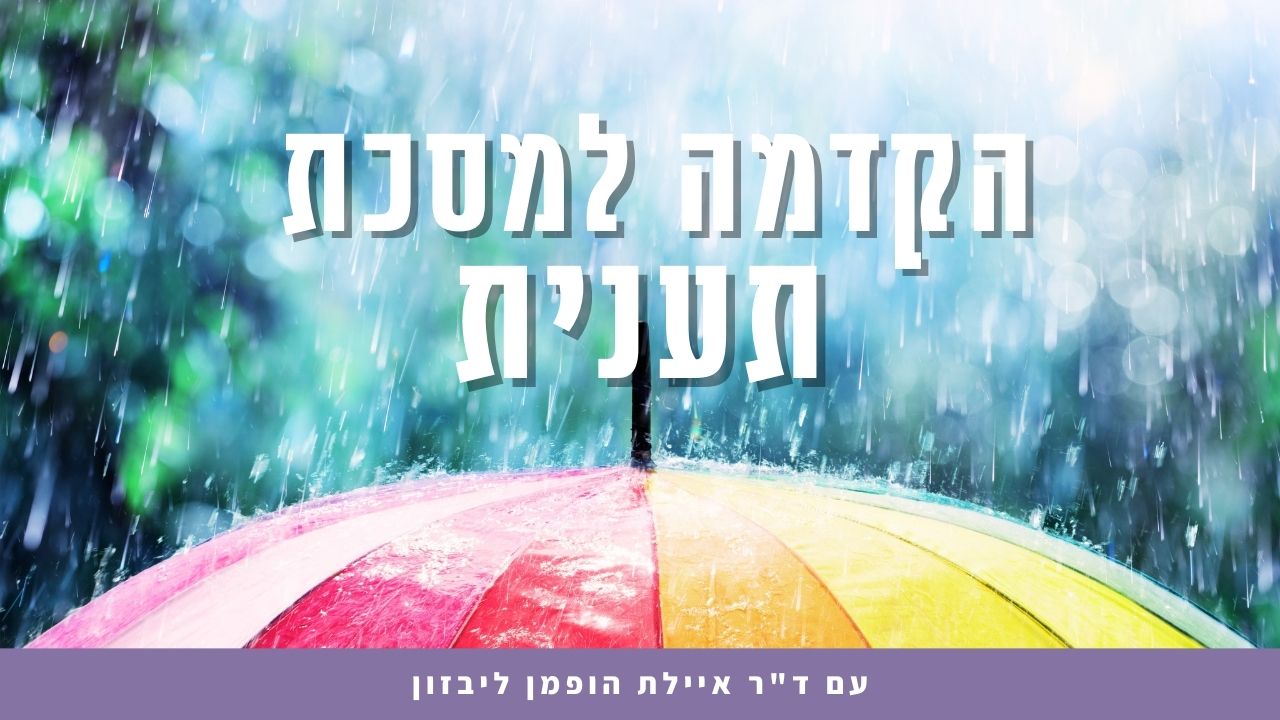הלימוד השבוע מוקדש ע”י נירה פלדמן לע”נ פיי דרק.
הלימוד השבוע מוקדש ע”י נירה פלדמן לע”נ פיי דרק.
רוצה להקדיש שיעור?

תקציר
כיצד מתנהלות התפילות במהלך הסדרה השלישית של התעניות? הארון נלקח לרחוב. מניחים אפר על ראשי המנהיגים ואז שמים גם האנשים על ראשיהם. זקן קם ומדגיש איך הקב”ה לא מתעניין בצומות ובשקים אלא במעשינו. ישנם קריטריונים לבחירת השליח ציבור. לתפילת שמונה עשרה מוסיפים שש ברכות נוספות ותוקעים בשופר לכל אחת מהן. מה נאמר בגוף כל ברכה וכיצד מסתיימת כל ברכה? בזמנם של רבי חלפתא ורבי חנינא בן תרדיון, ענו העם כפי שענו בבית המקדש (ברוך שם כבוד מלכותו לעולם ועד) במקום לענות אמן והרבנים לא היו מרוצים מכך. מה הם הכללים לגבי תעניות לכהנים שהיו במשמרות בבית המקדש באותו שבוע? מה עוד אסור להם לעשות בשבוע שבו הם עובדים בבית המקדש? באיזה מקרה יש יוצאים מן הכלל? התאריכים המוזכרים במגילת תענית – האם אפשר לצום יום לפני או אחרי? במה זה תלוי ומהן הדעות השונות? התעניות תמיד נקבעות לימי שני וחמישי אבל כל סדרה מתחילה ביום שני, אף פעם לא ביום חמישי – למה? אם מכריזים על צומות ומאוחר יותר מבינים שאחד התאריכים חל בראש חודש או חנוכה או פורים, האם עדיין צמים? הגמרא דנה בהנחת האפר ומדוע זה נעשה לפי הסדר הזה ובאופן המסוים שהזכירה המשנה?
כלים
הלימוד השבוע מוקדש ע”י נירה פלדמן לע”נ פיי דרק.
הלימוד השבוע מוקדש ע”י נירה פלדמן לע”נ פיי דרק.
כלים
העמקה
רוצה להבין מה באמת קורה מתחת לפני השטח של הסוגיה?
שיעורים, פודקאסטים והרחבות של מיטב המורות שלנו יפתחו לך עוד זוויות וכיווני חשיבה.
חדשה בלימוד הגמרא?
זה הדף הראשון שלך? איזו התרגשות עצומה! יש לנו בדיוק את התכנים והכלים שיעזרו לך לעשות את הצעדים הראשונים ללמידה בקצב וברמה שלך, כך תוכלי להרגיש בנוח גם בתוך הסוגיות המורכבות ומאתגרות.
פסיפס הלומדות שלנו
גלי את קהילת הלומדות שלנו, מגוון נשים, רקעים וסיפורים. כולן חלק מתנועה ומסע מרגש ועוצמתי.
תענית טו
לִבְזֹה נֶפֶשׁ לִמְתָעֵב גּוֹי לְעֶבֶד מֹשְׁלִים מְלָכִים יִרְאוּ וָקָמוּ״. וְשָׂרִים בְּהִשְׁתַּחֲוָיָה, דִּכְתִיב: ״שָׂרִים וְיִשְׁתַּחֲווּ״. מַתְקֵיף לַהּ רַבִּי זֵירָא, וְאִיתֵּימָא רַבִּי שְׁמוּאֵל בַּר נַחְמָנִי: אִי הֲוָה כְּתִיב ״וְשָׂרִים יִשְׁתַּחֲווּ״ — כִּדְקָאָמְרַתְּ, הַשְׁתָּא דִּכְתִיב ״שָׂרִים וְיִשְׁתַּחֲווּ״ — הָא וְהָא עֲבוּד.
to he who is despised of men, to he who is abhorred of nations, to a servant of rulers: Kings shall see and arise” (Isaiah 49:7); and ministers by bowing, as it is written, in the same verse: “Ministers, and they shall bow.” Rabbi Zeira strongly objects to this interpretation, and some say it was Rabbi Shmuel bar Naḥmani who objected. Had the verse written: And ministers shall bow, the meaning would have been as you said. However, now that it is written: “Ministers, and they shall bow,” this indicates that ministers will do this and that, i.e., they will both arise and bow.
אָמַר רַב נַחְמָן בַּר יִצְחָק, אַף אֲנִי אוֹמֵר: לֹא הַכֹּל לְאוֹרָה, וְלֹא הַכֹּל לְשִׂמְחָה. צַדִּיקִים — לְאוֹרָה, וִישָׁרִים — לְשִׂמְחָה. צַדִּיקִים לְאוֹרָה, דִּכְתִיב: ״אוֹר זָרֻעַ לַצַּדִּיק״. וְלִישָׁרִים שִׂמְחָה, דִּכְתִיב: ״וּלְיִשְׁרֵי לֵב שִׂמְחָה״.
Rav Naḥman bar Yitzḥak said: I too say a similar idea. Not all are fit for light, and not all are fit for gladness. The righteous are fit to be rewarded with light, and the upright are fit to be rewarded with gladness. The righteous are fit to be rewarded with light, as it is written: “Light is sown for the righteous” (Psalms 97:11), and the upright are fit to be rewarded with gladness, as it is written, in the same verse: “And gladness for the upright in heart.”
הֲדַרַן עֲלָךְ מֵאֵימָתַי
סֵדֶר תַּעֲנִיּוֹת כֵּיצַד? מוֹצִיאִין אֶת הַתֵּיבָה, לִרְחוֹבָהּ שֶׁל עִיר, וְנוֹתְנִין אֵפֶר מִקְלֶה עַל גַּבֵּי הַתֵּיבָה, וּבְרֹאשׁ הַנָּשִׂיא, וּבְרֹאשׁ אַב בֵּית דִּין, וְכׇל אֶחָד וְאֶחָד נוֹתֵן בְּרֹאשׁוֹ.
MISHNA: What is the customary order of fast days? Normally the sacred ark in the synagogue, which was mobile, was kept in a locked room. However, on fast days they remove the ark to the main city square and place burnt ashes upon the ark, as a sign of mourning. And they also place ashes on the head of the Nasi, and on the head of the deputy Nasi, and each and every member of the community likewise places ashes upon his head.
הַזָּקֵן שֶׁבָּהֶן אוֹמֵר לִפְנֵיהֶן דִּבְרֵי כִבּוּשִׁין: אַחֵינוּ! לֹא נֶאֱמַר בְּאַנְשֵׁי נִינְוֵה ״וַיַּרְא אֱלֹהִים אֶת שַׂקָּם וְאֶת תַּעֲנִיתָם״, אֶלָּא: ״וַיַּרְא הָאֱלֹהִים אֶת מַעֲשֵׂיהֶם כִּי שָׁבוּ מִדַּרְכָּם הָרָעָה״, וּבַקַּבָּלָה הוּא אוֹמֵר: ״וְקִרְעוּ לְבַבְכֶם וְאַל בִּגְדֵיכֶם״.
The eldest member of the community says to the congregation statements of reproof, for example: Our brothers, it is not stated with regard to the people of Nineveh: And God saw their sackcloth and their fasting. Rather, the verse says: “And God saw their deeds, that they had turned from their evil way” (Jonah 3:10). And in the Prophets it says: “And rend your hearts and not your garments, and return to the Lord your God” (Joel 2:13). This teaches that prayer and fasting are insufficient, as one must also repent and amend his ways in practice.
עָמְדוּ בִּתְפִלָּה — מוֹרִידִין לִפְנֵי הַתֵּיבָה זָקֵן וְרָגִיל וְיֵשׁ לוֹ בָּנִים, וּבֵיתוֹ רֵיקָם, כְּדֵי שֶׁיְּהֵא לִבּוֹ שָׁלֵם בִּתְפִלָּה.
They stood for prayer. The congregation appoints an elder, who is experienced in leading prayer, to descend before the ark as communal prayer leader. And this prayer leader must have children and must have an empty house, i.e., he must be poor, so that his heart will be fully concentrated on the prayer for the needs of his community.
וְאוֹמֵר לִפְנֵיהֶן עֶשְׂרִים וְאַרְבַּע בְּרָכוֹת: שְׁמוֹנֶה עֶשְׂרֵה שֶׁבְּכָל יוֹם, וּמוֹסִיף עֲלֵיהֶן עוֹד שֵׁשׁ, וְאֵלּוּ הֵן: זִכְרוֹנוֹת וְשׁוֹפָרוֹת, ״אֶל ה׳ בַּצָּרָתָה לִּי קָרָאתִי וַיַּעֲנֵנִי״, ״אֶשָּׂא עֵינַי אֶל הֶהָרִים וְגוֹ׳״, ״מִמַּעֲמַקִּים קְרָאתִיךָ ה׳״, ״תְּפִלָּה לְעָנִי כִי יַעֲטֹף״.
And he recites twenty-four blessings before the congregation: The eighteen blessings of the everyday Amida prayer, to which he adds another six blessings, and they are as follows: The special series of blessings recited on Rosh HaShana, the Remembrances and Shofarot; and the sections of Psalms that begin with the verses: “In my distress I called to the Lord and He answered me” (Psalms 120:1), “I will lift up my eyes to the mountains; from where will my help come” (Psalms 121:1), “Out of the depths I have called You, O Lord” (Psalms 130:1), and “A prayer of the afflicted, when he faints” (Psalms 102:1).
רַבִּי יְהוּדָה אוֹמֵר: לֹא הָיָה צָרִיךְ לוֹמַר זִכְרוֹנוֹת וְשׁוֹפָרוֹת, אֶלָּא אוֹמֵר תַּחְתֵּיהֶן ״רָעָב כִּי יִהְיֶה בָאָרֶץ דֶּבֶר כִּי יִהְיֶה״, ״אֲשֶׁר הָיָה דְבַר ה׳ אֶל יִרְמְיָהוּ עַל דִּבְרֵי הַבַּצָּרוֹת״.
Rabbi Yehuda says: The prayer leader did not need to recite the Remembrances and Shofarot passages. Rather, he recites instead of them the passage beginning with: “If there be famine in the land, if there be pestilence” (I Kings 8:37), followed by the verse “The word of the Lord that came to Jeremiah concerning the droughts” (Jeremiah 14:1).
וְאוֹמֵר חוֹתְמֵיהֶן. עַל הָרִאשׁוֹנָה הוּא אוֹמֵר: ״מִי שֶׁעָנָה אֶת אַבְרָהָם בְּהַר הַמּוֹרִיָּה הוּא יַעֲנֶה אֶתְכֶם וְיִשְׁמַע בְּקוֹל צַעֲקַתְכֶם הַיּוֹם הַזֶּה. בָּרוּךְ אַתָּה ה׳ גּוֹאֵל יִשְׂרָאֵל״. עַל הַשְּׁנִיָּה הוּא אוֹמֵר: ״מִי שֶׁעָנָה אֶת אֲבוֹתֵינוּ עַל יַם סוּף הוּא יַעֲנֶה אֶתְכֶם וְיִשְׁמַע קוֹל צַעֲקַתְכֶם הַיּוֹם הַזֶּה, בָּרוּךְ אַתָּה ה׳ זוֹכֵר הַנִּשְׁכָּחוֹת״.
And he recites at the end of all of these six blessing their unique conclusions. For the conclusion of the first blessing: Redeemer of Israel, he recites: He Who answered Abraham on Mount Moriah (see Genesis 22:11–18), He will answer you and hear the sound of your cry on this day. Blessed are You, Lord, Redeemer of Israel. For the second blessing, to which he adds the verses of Remembrances, he recites: He Who answered our forefathers at the Red Sea (see Exodus 14:15–31), He will answer you and hear the sound of your cry on this day. Blessed are You, Lord, Who remembers the forgotten.
עַל הַשְּׁלִישִׁית הוּא אוֹמֵר: ״מִי שֶׁעָנָה אֶת יְהוֹשֻׁעַ בַּגִּלְגָּל הוּא יַעֲנֶה אֶתְכֶם וְיִשְׁמַע בְּקוֹל צַעֲקַתְכֶם הַיּוֹם הַזֶּה, בָּרוּךְ אַתָּה ה׳ שׁוֹמֵעַ תְּרוּעָה״. עַל הָרְבִיעִית הוּא אוֹמֵר: ״מִי שֶׁעָנָה אֶת שְׁמוּאֵל בַּמִּצְפָּה הוּא יַעֲנֶה אֶתְכֶם וְיִשְׁמַע בְּקוֹל צַעֲקַתְכֶם הַיּוֹם הַזֶּה, בָּרוּךְ אַתָּה ה׳ שׁוֹמֵעַ צְעָקָה״. עַל הַחֲמִישִׁית הוּא אוֹמֵר: ״מִי שֶׁעָנָה אֶת אֵלִיָּהוּ בְּהַר הַכַּרְמֶל הוּא יַעֲנֶה אֶתְכֶם וְיִשְׁמַע בְּקוֹל צַעֲקַתְכֶם הַיּוֹם הַזֶּה, בָּרוּךְ אַתָּה ה׳ שׁוֹמֵעַ תְּפִלָּה״.
For the third blessing, which includes the verses of Shofarot, he recites: He Who answered Joshua at Gilgal, when they sounded the shofar in Jericho (see Joshua 5:6), He will answer you and hear the sound of your cry on this day. Blessed are You, Lord, Who hears the terua. For the fourth blessing, he recites: He Who answered Samuel in Mizpah (see I Samuel, chapter 7), He will answer you and hear the sound of your cry on this day. Blessed are You, Lord, Who hears cries. For the fifth he recites: He Who answered Elijah on Mount Carmel (see I Kings, chapter 18), He will answer you and hear the sound of your cry on this day. Blessed are You, Lord, Who hears prayer.
עַל הַשִּׁשִּׁית הוּא אוֹמֵר: ״מִי שֶׁעָנָה אֶת יוֹנָה מִמְּעֵי הַדָּגָה, הוּא יַעֲנֶה אֶתְכֶם וְיִשְׁמַע בְּקוֹל צַעֲקַתְכֶם הַיּוֹם הַזֶּה, בָּרוּךְ אַתָּה ה׳ הָעוֹנֶה בְּעֵת צָרָה״. עַל הַשְּׁבִיעִית הוּא אוֹמֵר: ״מִי שֶׁעָנָה אֶת דָּוִד וְאֶת שְׁלֹמֹה בְּנוֹ בִּירוּשָׁלַיִם, הוּא יַעֲנֶה אֶתְכֶם וְיִשְׁמַע בְּקוֹל צַעֲקַתְכֶם הַיּוֹם הַזֶּה, בָּרוּךְ אַתָּה ה׳ הַמְרַחֵם עַל הָאָרֶץ״.
For the sixth blessing he recites: He Who answered Jonah from within the innards of the fish (see Jonah 2:2–11), He will answer you and hear the sound of your cry on this day. Blessed are You, Lord, Who answers in a time of trouble. For the conclusion of the seventh blessing, which is actually the sixth additional blessing, as the first blessing listed here is an expanded version of a regular weekday blessing, he recites: He Who answered David and Solomon his son in Jerusalem (see I Kings 8:12–53), He will answer you and hear the sound of your cry on this day. Blessed are You, Lord, Who has mercy on the Land.
מַעֲשֶׂה
The mishna relates: An incident occurred
בִּימֵי רַבִּי חֲלַפְתָּא וְרַבִּי חֲנַנְיָא בֶּן תְּרַדְיוֹן שֶׁעָבַר אֶחָד לִפְנֵי הַתֵּיבָה וְגָמַר אֶת הַבְּרָכָה כּוּלָּהּ, וְלֹא עָנוּ אַחֲרָיו אָמֵן. תִּקְעוּ הַכֹּהֲנִים תִּקְעוּ! מִי שֶׁעָנָה אֶת אַבְרָהָם אָבִינוּ בְּהַר הַמּוֹרִיָּה, הוּא יַעֲנֶה אֶתְכֶם וְיִשְׁמַע בְּקוֹל צַעֲקַתְכֶם הַיּוֹם הַזֶּה. הָרִיעוּ בְּנֵי אַהֲרֹן הָרִיעוּ! מִי שֶׁעָנָה אֶת אֲבוֹתֵינוּ עַל יַם סוּף, הוּא יַעֲנֶה אֶתְכֶם וְיִשְׁמַע בְּקוֹל צַעֲקַתְכֶם הַיּוֹם הַזֶּה.
in the days of Rabbi Ḥalafta and Rabbi Ḥananya ben Teradyon, that someone passed before the ark as prayer leader and finished the entire blessing of the fast day, but the congregation did not answer amen after him. Instead, the attendant of the synagogue said: Sound the shofar with a long, unwavering sound, priests, blow the shofar. The prayer leader continued: He Who answered Abraham on Mount Moriah, He will answer you and hear the sound of your cry on this day. Once again, the attendant announced: Blast the shofar, with a wavering sound, sons of Aaron, blast. The prayer leader resumed: He Who answered our forefathers by the Red Sea, He will answer you and hear the sound of your cry on this day, and continued in this way.
וּכְשֶׁבָּא דָּבָר אֵצֶל חֲכָמִים, אָמְרוּ: לֹא הָיִינוּ נוֹהֲגִין כֵּן, אֶלָּא בְּשַׁעַר מִזְרָח וּבְהַר הַבַּיִת.
And when this matter came before the Sages, and they heard the custom of Rabbi Ḥalafta and Rabbi Ḥananya ben Teradyon, they said: They would act in accordance with this custom only at the Eastern Gate of the Temple and on the Temple Mount. However, this ceremony is never performed outside the Temple.
שָׁלֹשׁ תַּעֲנִיּוֹת הָרִאשׁוֹנוֹת — אַנְשֵׁי מִשְׁמָר מִתְעַנִּין וְלֹא מַשְׁלִימִין, וְאַנְשֵׁי בֵּית אָב לֹא הָיוּ מִתְעַנִּין כְּלָל. שָׁלֹשׁ שְׁנִיּוֹת — אַנְשֵׁי מִשְׁמָר מִתְעַנִּין וּמַשְׁלִימִין, וְאַנְשֵׁי בֵּית אָב מִתְעַנִּין וְלֹא מַשְׁלִימִין. שֶׁבַע אַחֲרוֹנוֹת — אֵלּוּ וָאֵלּוּ מִתְעַנִּין וּמַשְׁלִימִין, דִּבְרֵי רַבִּי יְהוֹשֻׁעַ.
§ On the first three fasts, the members of the priestly watch, who are in charge of the Temple service that week, fast but do not complete their fast. And the members of the patrilineal family, who perform the Temple service on that particular day, did not fast at all. On the second set of three fast days, the members of the priestly watch fast and complete the fast, and the members of the patrilineal family fast but do not complete their fasts. On the final seven fasts, both groups fast and complete the fasts. This is the statement of Rabbi Yehoshua.
וַחֲכָמִים אוֹמְרִים: שָׁלֹשׁ תַּעֲנִיּוֹת הָרִאשׁוֹנוֹת — אֵלּוּ וָאֵלּוּ לֹא הָיוּ מִתְעַנִּין כְּלָל. שָׁלֹשׁ שְׁנִיּוֹת — אַנְשֵׁי מִשְׁמָר מִתְעַנִּין וְלֹא מַשְׁלִימִין, וְאַנְשֵׁי בֵּית אָב לֹא הָיוּ מִתְעַנִּין כְּלָל, שֶׁבַע אַחֲרוֹנוֹת — אַנְשֵׁי מִשְׁמָר מִתְעַנִּין וּמַשְׁלִימִין, וְאַנְשֵׁי בֵּית אָב מִתְעַנִּין וְלֹא מַשְׁלִימִין.
And the Rabbis say: On the first three fasts, the members of both groups do not fast at all. On the second three fast days, the members of the priestly watch fast and do not complete their fast, and the members of the patrilineal family do not fast at all. On the final seven, the members of the priestly watch fast and complete the fast, and the members of the patrilineal family fast but do not complete their fast.
אַנְשֵׁי מִשְׁמָר — מוּתָּרִין לִשְׁתּוֹת יַיִן בַּלֵּילוֹת, אֲבָל לֹא בַּיָּמִים, וְאַנְשֵׁי בֵּית אָב — לֹא בַּיּוֹם וְלֹא בַּלַּיְלָה. אַנְשֵׁי מִשְׁמָר וְאַנְשֵׁי מַעֲמָד — אֲסוּרִין מִלְּסַפֵּר וּמִלְּכַבֵּס. וּבַחֲמִישִׁי מוּתָּרִין, מִפְּנֵי כְּבוֹד הַשַּׁבָּת.
The mishna mentions another difference between the members of the priestly watch and the patrilineal family: The members of the priestly watch were permitted to drink wine during the nights, but not during the days, as they might be called upon to assist in the Temple service, which may not be performed after drinking wine. And the members of the patrilineal family, who performed the Temple service, were not permitted to drink wine, neither at night nor during the day, as their tasks were performed at night as well. It is prohibited for both the members of the priestly watch and the members of the non-priestly watch to cut their hair or launder their garments throughout the week, but on Thursday it is permitted for them to cut their hair and launder their clothes in deference to Shabbat.
כׇּל הַכָּתוּב בִּמְגִלַּת תַּעֲנִית ״דְּלָא לְמִסְפַּד״ — לְפָנָיו אָסוּר, לְאַחֲרָיו — מוּתָּר. רַבִּי יוֹסֵי אוֹמֵר: לְפָנָיו וּלְאַחֲרָיו אָסוּר.
§ The mishna returns to the issue of fasting: Any day concerning which it is written in Megillat Ta’anit not to eulogize on that day, it is also prohibited to eulogize on the day before, but it is permitted to do so on the following day. Rabbi Yosei says: It is prohibited to eulogize both on the day before and on the following day.
״דְּלָא לְהִתְעַנָּאָה״ — לְפָנָיו וּלְאַחֲרָיו מוּתָּר. רַבִּי יוֹסֵי אוֹמֵר: לְפָנָיו אָסוּר, לְאַחֲרָיו מוּתָּר.
The mishna continues: With regard to those days concerning which it is written only not to fast, it is permitted to fast on the day before and on the following day. Rabbi Yosei says: Fasting the day before is prohibited, but on the following day it is permitted to fast.
אֵין גּוֹזְרִין תַּעֲנִית עַל הַצִּבּוּר בַּתְּחִילָּה בַּחֲמִישִׁי, שֶׁלֹּא לְהַפְקִיעַ הַשְּׁעָרִים. אֶלָּא שָׁלֹשׁ תַּעֲנִיּוֹת הָרִאשׁוֹנוֹת: שֵׁנִי וַחֲמִישִׁי וְשֵׁנִי, וְשָׁלֹשׁ שְׁנִיּוֹת: חֲמִישִׁי שֵׁנִי וַחֲמִישִׁי. רַבִּי יוֹסֵי אוֹמֵר: כְּשֵׁם שֶׁאֵין הָרִאשׁוֹנוֹת בַּחֲמִישִׁי, כָּךְ לֹא שְׁנִיּוֹת וְלֹא אַחֲרוֹנוֹת.
The mishna continues: One may not decree a fast on the community starting on a Thursday, so as not to cause an increase in prices. If the first of a series of fasts is on a Thursday, then on Friday everyone will come to purchase their food for after the fast and for Shabbat, which will allow the storeowners to take advantage of the crowds and raise their prices. Rather, the first set of three fasts is on a Monday, Thursday, and the following Monday, and the second set of three is on a Thursday, Monday, and the following Thursday. Rabbi Yosei says: Just as the first three fasts do not begin on Thursday, so too, neither the second set nor the last set starts on a Thursday. Instead, all the series of fasts begin on a Monday.
אֵין גּוֹזְרִין תַּעֲנִית עַל הַצִּבּוּר בְּרָאשֵׁי חֳדָשִׁים, בַּחֲנוּכָּה, וּבְפוּרִים. וְאִם הִתְחִילוּ — אֵין מַפְסִיקִין, דִּבְרֵי רַבָּן גַּמְלִיאֵל. אָמַר רַבִּי מֵאִיר: אַף עַל פִּי שֶׁאָמַר רַבָּן גַּמְלִיאֵל אֵין מַפְסִיקִין, מוֹדֶה הָיָה שֶׁאֵין מַשְׁלִימִין. וְכֵן תִּשְׁעָה בְּאָב שֶׁחָל לִהְיוֹת בְּעֶרֶב שַׁבָּת.
The mishna further states: One may not decree a fast on the community on New Moons, on Hanukkah, or on Purim. And if they decreed and began a set of fasts, and only afterward realized that one of the fasts would occur on one of these days, they do not interrupt the sequence. This is the statement of Rabban Gamliel. Rabbi Meir said: Although Rabban Gamliel said that they do not interrupt the sequence, he concedes that on these days, which are days with special observances, they do not complete the fast. And similarly, when the Ninth of Av occurs on Shabbat eve, the fast is not completed and one eats before the start of Shabbat, so as not to enter Shabbat while fasting.
גְּמָ׳ סֵדֶר תַּעֲנִיּוֹת כֵּיצַד? מוֹצִיאִין אֶת הַתֵּיבָה כּוּ׳. וַאֲפִילּוּ בְּקַמַּיְיתָא? וּרְמִינְהוּ: שָׁלֹשׁ תַּעֲנִיּוֹת רִאשׁוֹנוֹת וּשְׁנִיּוֹת נִכְנָסִים לְבֵית הַכְּנֶסֶת, וּמִתְפַּלְּלִין כְּדֶרֶךְ שֶׁמִּתְפַּלְּלִין כׇּל הַשָּׁנָה כּוּלָּהּ
GEMARA: The mishna teaches: What is the order of fast days? They remove the ark. The Gemara asks: And is this ritual performed even on the first set of fasts? And the Gemara raises a contradiction from a baraita: On the first and second sets of three fasts, everyone enters the synagogue and they pray in the manner that they pray throughout the entire year.
וּבְשֶׁבַע אַחֲרוֹנוֹת מוֹצִיאִין אֶת הַתֵּיבָה לִרְחוֹבָהּ שֶׁל עִיר, וְנוֹתְנִין אֵפֶר עַל גַּבֵּי הַתֵּיבָה, וּבְרֹאשׁ הַנָּשִׂיא, וּבְרֹאשׁ אַב בֵּית דִּין, וְכׇל אֶחָד וְאֶחָד נוֹטֵל וְנוֹתֵן בְּרֹאשׁוֹ. רַבִּי נָתָן אוֹמֵר: אֵפֶר מִקְלֶה הֵן מְבִיאִין! אָמַר רַב פָּפָּא: כִּי תְּנַן נָמֵי מַתְנִיתִין — אַשֶּׁבַע אַחֲרוֹנוֹת תְּנַן.
The baraita continues: And on the final seven fasts they remove the ark to the main city square and place ashes upon the ark, and on the head of the Nasi, and on the head of the deputy Nasi, and each and every member of the community takes ashes and places them upon his head. Rabbi Natan says: They would bring specifically burnt ashes. This baraita indicates that the full ritual is performed only on the final set of fasts. Rav Pappa said in explanation: When we taught the mishna as well, it was taught only with regard to the final set of seven fasts, not the earlier series of fasts.
וּבְרֹאשׁ הַנָּשִׂיא, וַהֲדַר תָּנֵי כׇּל אֶחָד וְאֶחָד נוֹתֵן בְּרֹאשׁוֹ. אִינִי?! וְהָתַנְיָא: רַבִּי אוֹמֵר: בִּגְדוּלָּה מַתְחִילִין מִן הַגָּדוֹל, וּבִקְלָלָה מַתְחִילִין מִן הַקָּטָן.
§ And the mishna further states that ashes are placed on the head of the Nasi and on the head of the deputy Nasi. And then it teaches that each and every member of the community places ashes upon his head. The Gemara asks: Is that so? Is this the proper order? Isn’t it taught in a baraita that Rabbi Yehuda HaNasi says: With regard to matters of greatness, where it is a mark of honor and distinction to be treated first, one begins with the greatest member of the group, but for any matter involving a curse or dishonor, one begins with the least important member of the group.
בִּגְדוּלָּה מַתְחִילִין מִן הַגָּדוֹל, שֶׁנֶּאֱמַר: ״וַיֹּאמֶר מֹשֶׁה אֶל אַהֲרֹן וּלְאֶלְעָזָר וּלְאִיתָמָר״. וּבִקְלָלָה מַתְחִילִין מִן הַקָּטָן — שֶׁבַּתְּחִלָּה נִתְקַלֵּל נָחָשׁ, וְאַחַר כָּךְ נִתְקַלְּלָה חַוָּה, וְאַחַר כָּךְ נִתְקַלֵּל אָדָם!
The Gemara cites a baraita which provides the sources for this principle. With regard to matters of greatness one begins with the greatest member, as it is stated: “And Moses said to Aaron, and to Elazar and to Itamar, his sons” (Leviticus 10:6). Moses first addresses the most important person, Aaron, and this was a matter of distinction, as the verse continues: “For the anointing oil of the Lord is upon you” (Leviticus 10:7). And for any matter involving a curse, one begins with the least important member of a group, as the serpent was cursed first, and afterward Eve was cursed and afterward Adam was cursed.
הָא חֲשִׁיבוּתָא לְדִידְהוּ, דְּאָמְרִי לְהוּ: אַתּוּן חֲשִׁיבִיתוּ לְמִיבְעֵי עֲלַן רַחֲמֵי אַכּוּלֵּי עָלְמָא.
Why, then, are the leaders of the community, its most important members, the first to perform these fast day expressions of mourning, which are a response to a curse? The Gemara answers: The reason is that this leadership role in the performance of these acts is considered a distinction and an honor for them, as it is as though the community is saying to them: You are worthy of requesting compassion on behalf of everyone.
כׇּל אֶחָד וְאֶחָד נוֹתֵן בְּרֹאשׁוֹ. נָשִׂיא וְאַב בֵּית דִּין נָמֵי נִשְׁקְלוּ אִינְהוּ וְנַינְּחוּ בְּרֵאשַׁיְיהוּ, מַאי שְׁנָא דְּשָׁקֵיל אִינִישׁ אַחֲרִינָא וּמַנַּח לְהוּ? אָמַר רַבִּי אַבָּא דְּמִן קֵסָרִי: אֵינוֹ דּוֹמֶה מִתְבַּיֵּישׁ מֵעַצְמוֹ
§ The mishna teaches: Each and every member of the community places ashes upon his head. The Gemara asks: Let the Nasi and the deputy Nasi also take ashes themselves and place them upon their own heads. What is different with regard to them, that someone else takes the ashes and places them on their heads? Rabbi Abba of Caesarea said: This is done intentionally, as one who humiliates himself, in this case by placing ashes upon his own head, is not similar to
